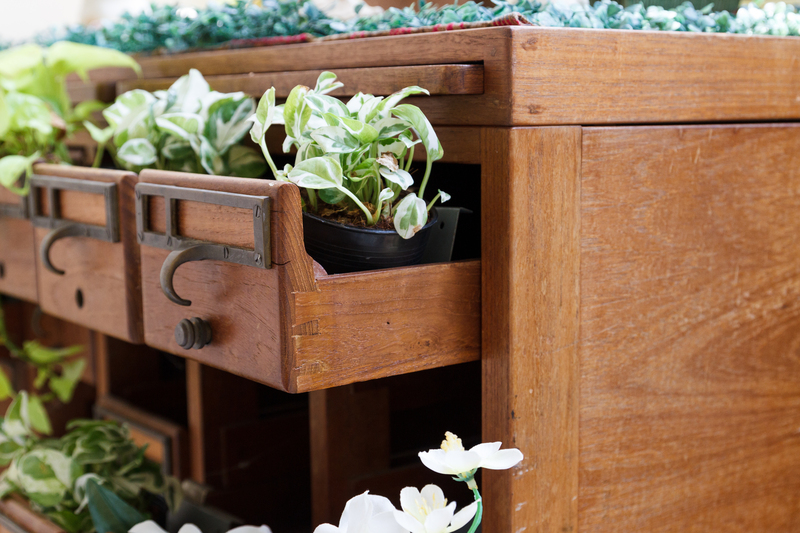Money Matters: Efficient Disposal of Large Waste Items
Properly getting rid of bulky waste can be both a logistical and financial challenge for homeowners, renters, and businesses. Whether it's old furniture, broken appliances, or construction debris, efficient disposal of large waste items can help you not only save money but also protect the environment and even earn a bit of cash back. This comprehensive guide explores cost-effective, eco-friendly methods for disposing of large refuse, highlighting the most efficient strategies for different types of bulky waste.

Understanding Bulky Waste: Types and Challenges
Large waste items--often referred to as "bulky waste" or "bulk trash"--include objects too big or heavy to be disposed of in standard bins. These can range from couches and refrigerators to mattresses, bathtubs, and yard debris. Their disposal poses unique challenges, such as:
- High transportation and landfill costs
- Health and safety risks during lifting and hauling
- Limited curbside collection services in many cities
- Environmental harm if improperly dumped
Efficient disposal of large waste is vital not just for aesthetics and comfort, but for the financial well-being of individuals and communities. Let's examine why money matters in this equation and what options you have for managing big rubbish responsibly.
Why Money Matters in Bulky Waste Disposal
Ignoring or mishandling large-item trash can be costly in more ways than one:
- Fines: Illegal dumping or non-compliance with local regulations often leads to hefty penalties.
- Service charges: Hiring professional haulers or using municipal bulk pickup usually involves fees.
- Hidden costs: Unsafe handling could lead to injuries or property damage, leading to bills that could easily be avoided.
In addition, disposal of big items can be an opportunity to save or even make money if approached efficiently. The key is understanding the variety of options available and choosing the best one for your situation.
Methods of Disposing Large Waste Items Efficiently
1. Utilize Municipal Bulk Trash Pickup Services
Many cities and towns offer bulk pickup days when residents can leave large items at the curb for collection. This is often the most affordable disposal option, as the cost is typically included in local taxes or waste fees. However, there are limitations:
- Frequency (sometimes only monthly or quarterly)
- Size and weight restrictions per item
- Prohibited materials (e.g., hazardous waste, some electronics)
Tip: Check your municipality's website for a calendar of bulk pickup events and a list of accepted items. Planning ahead ensures you won't miss collection days, and combining items can help households save money if limits are per household rather than per piece.
2. Hire Private Junk Removal Services
If municipal options aren't available or don't meet your needs, professional junk haulers can efficiently remove almost any bulky item for a fee. Although this is rarely the cheapest route, it offers:
- Convenience: Flexible scheduling and full labor
- Compliance: Proper disposal and recycling included
- Safety: They're equipped for heavy lifting and stair carries
To maximize savings, get quotes from multiple providers and ask if they offer special rates for multiple-item pickups, senior citizens, or first-time customers.
3. Drop-Off at Waste Transfer Stations or Landfills
If you can transport items yourself--perhaps by renting a truck or borrowing a vehicle--direct drop-off is often the most efficient way to dispose of large waste cheaply. Most areas have designated public dumps or transfer stations where individuals can bring approved items for a nominal fee. Benefits include:
- Immediate disposal--no waiting for pickup dates
- Potential for lower costs
- Some centers have recycling programs onsite
Be sure to check facility regulations in advance, as many have restrictions on commercial vehicles, hazardous materials, or non-resident drop-offs.
4. Donate or Sell Usable Items
One person's trash is another's treasure. Many charities, thrift stores, and online marketplaces gladly accept large items in usable condition, such as couches, bed frames, or refrigerators. Benefits of this approach:
- Reduce landfill waste
- Help families in need
- Qualify for tax deductions (for charitable donations)
- Earn cash by selling on platforms like Craigslist, Facebook Marketplace, or OfferUp
Some organizations even offer free pickup services for large donations--helping you dispose of bulk items with minimal effort and zero cost.
5. Recycle or Repurpose Whenever Possible
Many bulky waste items contain valuable materials that can be recycled:
- Appliances: components like metal, glass, and plastic are highly recyclable
- Mattresses and box springs: many states mandate recycling to reclaim steel, foam, and fabric
- Electronics (e-waste): usable parts can be reused or responsibly processed through certified programs
Search for recycling centers in your area that accept specific large items. Local governments and retailers (especially for electronics) often run periodic collection events or year-round programs.
Money-Saving Tips for Large Waste Disposal
With the right approach, disposing of big rubbish needn't drain your wallet. Here are proven strategies to keep costs low and gain maximum value:
Combine Multiple Items for Single Pickups
Most junk removal companies and municipalities charge per pickup or per load--not per individual item. Wait until you have several items and dispose of them together to get more value from each trip or service call.
Take Advantage of Free Community Clean-Up Days
Look for local government-sponsored events--including "dump days," spring clean-ups, or recycling drives--where citizens can dispose of large items at no cost. Availability varies by city, but they provide a great opportunity for efficient bulk waste disposal with zero out-of-pocket expense.
Share Costs with Neighbors or Friends
If a pickup service charges by the truckload, coordinate with neighbors to combine items and split the fee. Group disposal is especially cost-effective for multi-unit buildings or community associations.
Sell Valuable Scrap or Parts
Large items like appliances, bicycles, or exercise equipment may contain valuable metals or working components. Sell these parts to scrap yards or through online communities. Even non-functioning items can fetch money if they contain copper, aluminum, or electronic boards.
Disassemble When Possible
Some disposal sites and services charge based on volume. Breaking bulky items into smaller pieces can reduce the space they occupy, saving you money on dumping fees or allowing you to fit more items per load.
Environmentally Friendly Approaches
Modern waste management emphasizes not just economics, but environmental impact. Improper disposal of big items can harm habitats, fill landfills, and even pose fire hazards. Consider these eco-friendly disposal tips:
- Donate or reuse whenever possible
- Choose haulers that sort and recycle materials
- Use local recycling drop-offs for e-waste and mattresses
- Never dump hazardous items (like fridges or paint) illegally; seek out authorized drop-off days or hazardous waste facilities
By making sustainable choices, you help conserve resources, reduce pollution, and contribute positively to your community's well-being--an important aspect of responsible money management.
Know Your Local Regulations
Whether disposing of a sofa, refrigerator, or building debris, always research local rules. Most cities:
- Ban certain items from landfills (e.g., tires, electronics, hazardous waste)
- Require advance notice or permits for curbside pickup
- Mandate recycling for specific bulk waste categories
Breaking these rules--knowingly or unknowingly--can result in fines that easily outweigh the cost of legal, efficient disposal.
Frequently Asked Questions (FAQ)
1. How do I dispose of a large sofa or mattress?
Most municipalities offer quarterly or annual bulk pickup for furniture and mattresses. Private junk haulers will remove them for a fee. Alternatively, donate to charity if the items are in good condition or check local recycling programs for mattresses, which are now required in some states like California and Connecticut.
2. Can I throw an old refrigerator or washing machine in the trash?
No--appliances contain refrigerants and heavy metals that are hazardous. Use retailer take-back schemes (many deliverers will haul away your old unit), municipal "white goods" collection, or specialty recyclers. Check for manufacturer recycling incentives for electronics and appliances.
3. Is burning large debris a legal or efficient option?
Generally, burning large waste items is unsafe, inefficient, and often illegal. It pollutes the air and is banned in most urban areas. Stick to approved disposal or recycling methods.
4. Are there options for free appliance or furniture removal?
Yes--some charities, scrap dealers, or manufacturer return programs offer free removal if the items hold resale or recycling value. For best results, call ahead to check availability and eligibility in your area.

Conclusion: Smart, Efficient, and Financially Wise Disposal
Money matters when disposing of large waste items, but so do the environment and community standards. By understanding your local options, maximizing value through donations, recycling, and cost-sharing, and adhering to regulations, you'll get rid of bulky items without breaking the bank. Efficient disposal doesn't just declutter your living space; it saves money, reduces environmental harm, and can even put cash back in your pocket.
Ready to tackle your next big waste disposal project? Start today by planning ahead, contacting your local municipality, and considering all the efficient and eco-friendly options discussed above for responsible, affordable removal of large waste items.
Resources and Additional Reading
- U.S. EPA: Recycling Basics
- Earth911: How to Recycle Large Items
- Habitat for Humanity ReStore Donation Guidelines
By applying the principles of efficient disposal of large waste items, you'll protect your finances and the planet--proving that, when it comes to trash, money really does matter.
